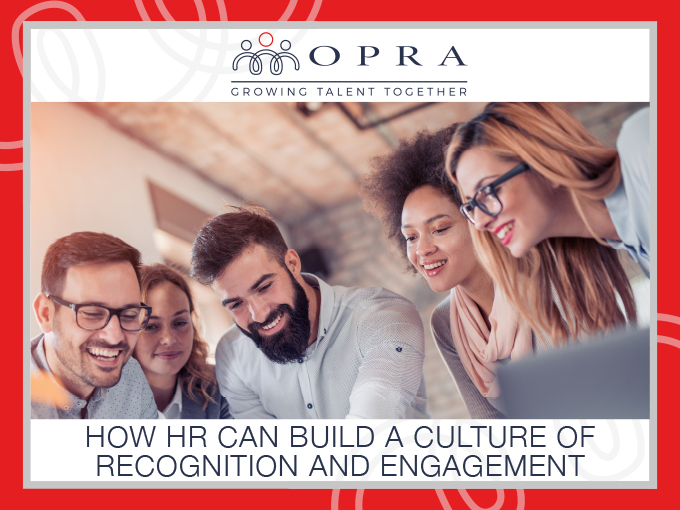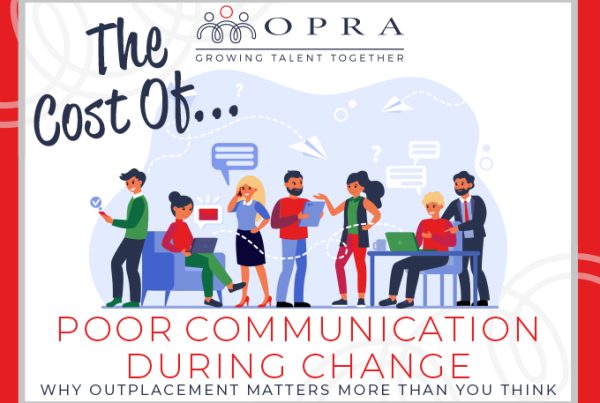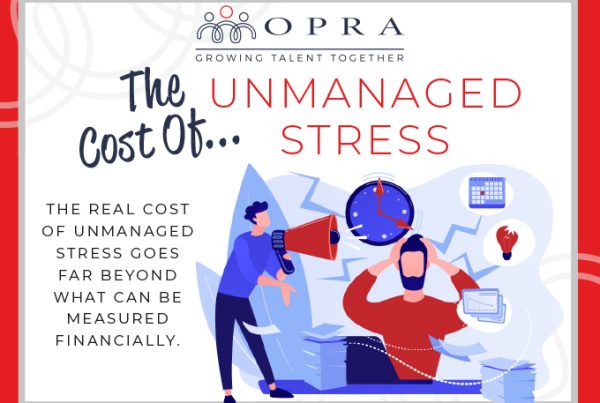Employee recognition isn’t just about saying “thank you.” Done right, it can transform workplace culture, boost morale, and significantly improve retention. In today’s competitive job market, businesses that create genuine recognition programmes stand out, and that’s where HR plays a crucial role.
We know that engagement and recognition are powerful drivers of success, and we work with businesses to build people strategies that make a lasting impact.

Why Recognition Matters
Recognition is one of the most cost-effective ways to keep employees motivated. According to research, employees who feel valued are:
- 5x more likely to be engaged in their work
- 4x more likely to recommend their workplace
- 31% less likely to look for another job
It’s not just about retention, recognition also improves performance, collaboration, and company culture.

Practical Ways HR Can Build Recognition into Culture
1. Make Recognition Timely and Specific
Generic “good job” comments don’t have the same impact as personalised recognition. HR can coach managers to give specific, timely feedback that highlights the exact behaviour or achievement being celebrated.
2. Introduce Peer-to-Peer Recognition
Recognition shouldn’t only flow top-down. Encouraging colleagues to acknowledge each other’s efforts builds stronger teams and creates a more inclusive culture. HR can implement digital tools or structured programmes to make this simple.
3. Celebrate Both Big and Small Wins
Recognition doesn’t have to be tied to big achievements. Small, consistent acknowledgements, from completing a tough project to living company values, go a long way in creating a culture of appreciation.
4. Link Recognition to Company Values
Recognition is most powerful when it reinforces your organisation’s values. HR can embed recognition frameworks that highlight behaviours aligned with company culture, helping employees see how their work contributes to the bigger picture.
5. Train Leaders in Recognition
Managers play a vital role in employee engagement. HR can provide training and resources to help leaders give recognition effectively, ensuring it feels authentic and not forced.
6. Mix Monetary and Non-Monetary Rewards
While bonuses and incentives have their place, non-monetary recognition — like public praise, development opportunities, or flexible working options — often feels more meaningful. HR can help strike the right balance.
The Benefits of a Recognition-Driven Culture
When HR leads the way in building a recognition culture, businesses benefit from:
- Higher retention rates – employees feel valued and are more loyal.
- Improved morale – creating a more positive, motivated workforce.
- Stronger performance – engaged employees consistently deliver more.
- Better recruitment outcomes – recognition-rich cultures attract top talent.

The OPRA Group Perspective
At The OPRA Group, we believe that recognition and engagement are not “nice-to-haves” but essential pillars of business success. Through our HR services, we help companies:
- Create recognition frameworks tailored to their culture
- Train managers to recognise and engage effectively
- Design people strategies that improve retention and performance
By embedding recognition into your HR strategy, you don’t just keep employees, you empower them to do their best work every day.
Ready to Boost Morale and Retention?
If you’d like support building a culture of recognition and engagement in your workplace, The OPRA Group is here to help.
Get in touch with our HR experts today and start creating a people-first culture that delivers results.
#HR #EmployeeEngagement #Retention #Recognition #GrowingTalentTogether





